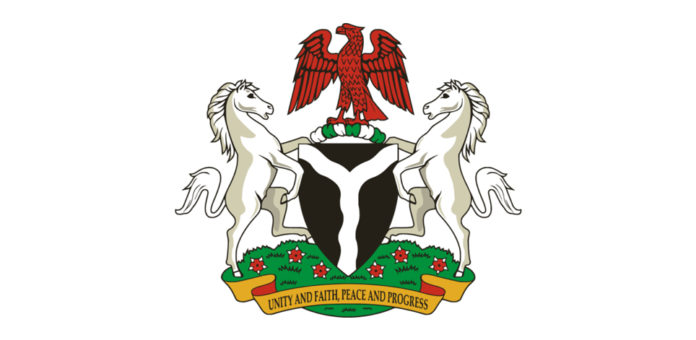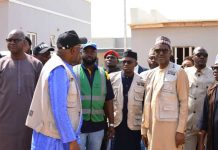The Federal Government has asked for more foreign support for climate action in Nigeria, saying it affects oil and gas, which is the mainstay of the country’s economy.
Minister of Labour and Employment, Sen. Chris Ngige said this in his Abuja office at the inauguration of the Initiative for Climate Action Transparency (ICAT) Project Steering Committee and commissioning of the Project Consultants.
Ngige assured that with more support for Nigeria on her journey to just and gender inclusive transition, the country will arrive at the destination, which touches on lifting people out of poverty, creation of new jobs and moving away from old habits that were not technology dependent.
He described labour as very important in fulfilling Nigeria’s international commitments to climate change action including Paris Agreement and the achievement of her energy transition plan.
Noting that the world is trying to stop pollution from hydrocarbon, the minister said his ministry took the lead to crystallize its ambition to be part of this global world initiative.
He said: “The man in Oil and Gas spoke, and I was happy. He realizes that the area is the weighty area because we are trying to wean off Nigeria from the mainstay of our economy, so, it will not be very easy.
“The presidential candidates are talking. Many of them said that if you want us to remove carbon and go green, fund the alternative. They are making it as a policy statement, loud and clear.
“I approved the project for the ministry, domiciled it under the Department of Special Duties and Project and formed a steering committee with five Directors and the Director General of National Directorate of Employment (NDE), to represent the ministry in this high level discussion.
“It was inaugurated on November 18, 2022 at the COP 27 meeting. We thank the Director of ICAT, Dr Henning Wuester for being part of the support for us. Initially, many people didn’t give a thought to the fact that labour is a component of all productions and that if you don’t have labour, you won’t have employers, industrialists and corporate organisations that employ people to give them a living, whether in the private and public sector.”
Ngige explained that in the spirit of that cooperation, ICAT is supporting the Federal Government through the Ministry of Labour and Employment, to develop a monitoring, reporting and verification (MRV) of a just and gender inclusive transition and serve the entire gamut of the project.
He disclosed that his ministry coordinates the project, working in a compartmentalised mode, but synergising with the Federal Ministry of Environment, which is the lead ministry on climate change initiatives.
He said his ministry aims at achieving an institutional memory, stakeholder inclusion and cooperation by working with its Environment counterpart.
On the labour compartment, Ngige said they dovetailed down to adopt a tripartite cooperation between the government, organised labour and the employers association in Nigeria.
He, however, called for the expansion of the net to get more organisations like the Nigerian Association of Chambers of Commerce, Industry, Mines and Agriculture (NACCIMA), Manufacturers Association of Nigeria (MAN), and the Nigerian Association of Small and Medium Enterprises (NASME).
Describing the gender aspect of inclusive transition as a very big leg of this initiative, he noted that when the female gender participate in a project in Nigeria, a lot of people are affected because they are in charge of households and whatever they were given, returns to the households.
Ngige expressed optimism that the overall outcome of the project will support policy makers to set up everything needed on this transition journey on climate, especially with the implementation of Paris Agreement and Nigeria’s energy transition plan.
He insisted that Nigeria must also be able to feed itself, adding that appreciable progress has been made in agriculture since President Muhammadu Buhari assumed office in 2015, leading to many Nigerians currently consuming locally produced rice, beans and potatoes, among others.
Regarding child labour, Ngige said the government wants to stop parents using their children to work in their farms and therefore urged the committee to synergise with his ministry on this.
Earlier, the Director of ICAT, Dr. Henning Wuester said transparency plays a key role for the achievement of the objectives of the Paris agreement, being the basis for planning, tracking and stakeholder engagement.
According to Wuester, ICAT offers tools, methodologies and directs reports to the countries to the agreement.
He explained that planning means setting ambitious but realistic targets, and designing effective policies to implement them, while tracking is the monitoring of the implementation of these policies and measures to see whether everything is on track or the course needs to be rectified.
In her presentation, the Gender Expert, Dr. Martina Nwodu, noted that women are closer to the environment because they are the home mangers who provide domestic energy by using firewood and charcoal gotten from the forests, which leads to desertification.
She said even as farmers, women deploy crude methods that degrade economy because they do not have modern farming implements.
According to her, if the women could be involved in the climate change action, they could act as change agents to help combat climate change impact on the environment.
Others who spoke at the event include the Project Lead Consultant, Dr. Peter Tarfa, International Project Consultant, Cynthia Elliot, the Permanent Secretary of the Federal Ministry of Labour and Employment, Ms. Daju Kachollom and other project consultants.
Olajide Oshundun
Director, Press and Public Relations Department






